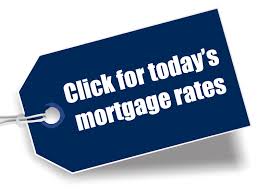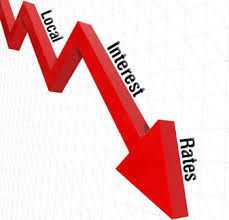I think we can all agree we are ready for some familiarity and to put these unprecedented times behind us.
However, while we hate to say it, we must; there was nothing predictable about 2021, including the housing market. Interest rates hit record lows and we saw the strongest yearly growth in single-family home prices ever. Foreclosure rates were at historic lows and home sales hit their highest level in 15 years. Continuously, homeowners were able to sell their homes quickly and usually well above asking price. Potential buyers grew fatigued attempting to secure the winning bid after losing out on numerous homes. In short, 2021 brought one of the most competitive housing markets in recent U.S. history.

In regards to 2022… Again, there’s a lot we don’t know and frankly cannot predict. There are still many factors at play, like the pandemic and general economic uncertainty, that will continue to drive the unpredictable housing market. With that in mind, in the following paragraphs, we’ve done our best to lay out where we expect the housing market to go next year. Please remember, we cannot guarantee what will happen with the 2022 housing market. The following predictions are just that, a prediction… An educated guess of what we may expect for the housing market in the coming year. With all that in mind, read on and enjoy!
Home Prices
OUR PREDICTION: Home prices will continue to rise but at a slower pace.
The rate in which home prices were accelerating in 2020 and 2021 simply cannot be compared to any other year. This past year, we saw home appreciation levels at the highest they’ve ever been. Next year we’re predicting more homes to come on the market, which should help to forego such intense multiple offer situations and should take the pressure off of high home prices. Home appreciation is expected to increase, just not so dramatically next year. In fact, as we round out 2021, home prices are already decelerating toward a healthier housing market for 2022. Looking forward, buyers should remain prepared for a competitive market but can expect to have more breathing room.
Inventory & Demand
OUR PREDICTION: Inventory of homes will slowly rise while demand remains high.
In 2022, we predict the market will remain strong, but the pace at which homes are selling will decrease; this in turn should bring an increase in the number of homes available to buyers. Over the past year, it felt like there was no inventory. When in reality, there was inventory, just a lack of ongoing supply. When a home hit the market, it was snatched up in record time. In 2022, we expect that trend to dwindle with less bidding wars and more time for buyers to make decisions. In addition, with the flexibility of the option to work remotely for many, we believe home buyers will have wider options as to where they can feasibly live. Without needing to live within a certain distance from the office, buyers will have an expanded area to shop in, making inventory feel more abundant.
Interest Rates
OUR PREDICTION: Interest rates will rise, while still remaining historically low.
If we were to choose just one phrase to sum up the 2021 housing market, we would choose “historically low interest rates”. This next year should be no different. While rates are expected to rise, they should still remain historically low. Inflation is climbing, and the main way the FED fights inflation is by raising interest rates; it feels inevitable that with rates so low, they must go up at least a litte. The impact of rising rates will mean rate term refinances will dwindle, and cash out refinances will take their place. Buyers should still feel the urgency to lock in a low rate, as the impact of rock bottom rates are long-lasting.
Bottom Line
Overall, we predict that the housing market will slow down slightly, but really only in comparison to the fast-paced market 2020 and 2021 brought us. The combination of historically low interest rates, a low rate of unemployment and a strengthening job market will continue to cultivate a solid housing market with homeownership becoming more and more accessible to a wider number of people. If the past few years have taught us anything, it is that things can always change and to expect the unexpected. What will come in 2022 is a mystery, but whatever it may be, Cambria Mortgage is here to guide you through it.
(651) 552-3681 / JoeMetzler.com. NMLS 274132. Serving MN, WI, IA, ND, and SD.
SOURCES:
Brock, M. (2021, December 16). Guide To 2022 Housing Market Predictions And Forecasts. Retrieved December 28, 2021, from
https://www.rocketmortgage.com/learn/2022-housing-market-predictions
KCM Crew (2021, December 29). Expert Insights on the 2022 Housing Market. Retrieved December 28, 2021, from
https://www.keepingcurrentmatters.com/2021/12/29/expert-insights-on-the-2022-housing-market/?utm_campaign=Blog_Promo&utm_medium=email&utm_source=email-automated&utm_content=DailyBlogSubscription&utm_term=BlogPost
LePard, C. (2021, December 09). Real Estate Experts Expect Slightly Better Inventory, Double Digit Home Appreciation In 2022 Housing Market. Retrieved December 28, 2021, from
https://www.news5cleveland.com/marketplace/real-estate/real-estate-experts-expect-slightly-better-inventory-double-digit-home-appreciation-in-2022-housing-market
Meyer, D. (2021, December 10). 2021 Housing Market Recap (& What To Watch for in 2022). Retrieved December 27, 2021, from
https://youtu.be/fW-Ry9b4lYM
Richardson, B. (2021, December 13). Experts Predict What The Housing Market Will Look Like In 2022. Retrieved December 28, 2021, from
https://www.forbes.com/sites/brendarichardson/2021/12/13/experts-predict-what-the-housing-market-will-look-like-in-2022/?sh=37af5f023942
Schuffet, H. (2021, December 16). 2022 Housing Market Predictions: What To Expect. Retrieved December 28, 2021, from

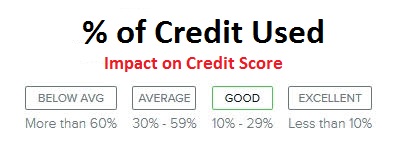
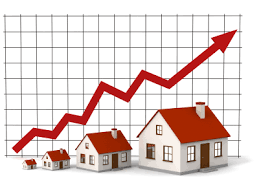

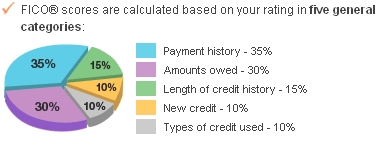


 Just because you’ve seen them on TV or hear their radio advertising a million times saying how Quick In Loans they are, does not make them a good choice. Actually what makes them a bad choice is because of their advertising. You see, all lenders get their money from the same source on the same day at the same time. All lenders have essentially the exact same closing costs, and all lenders are basically going to underwrite to the same guidelines. If they spend millions of dollars everyday advertising, and I don’t, who needs to have a higher profit margin?
Just because you’ve seen them on TV or hear their radio advertising a million times saying how Quick In Loans they are, does not make them a good choice. Actually what makes them a bad choice is because of their advertising. You see, all lenders get their money from the same source on the same day at the same time. All lenders have essentially the exact same closing costs, and all lenders are basically going to underwrite to the same guidelines. If they spend millions of dollars everyday advertising, and I don’t, who needs to have a higher profit margin?